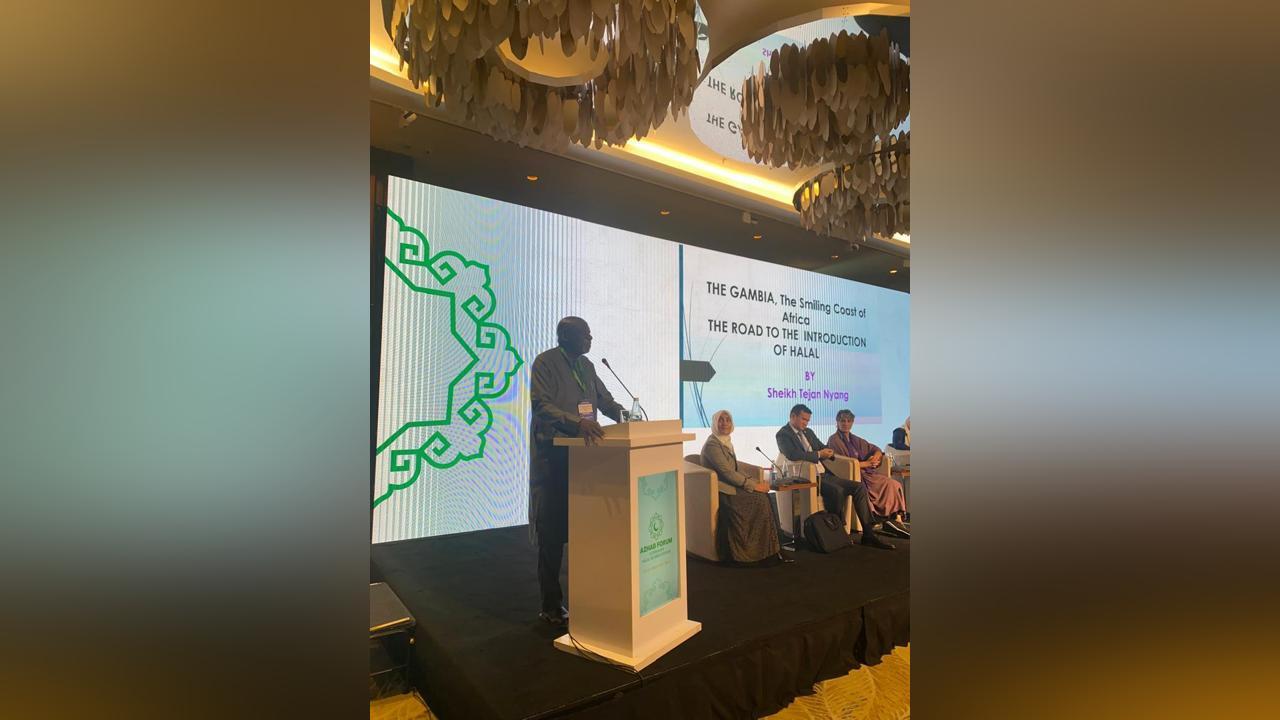Africa-Press – Gambia. The Head of School at the Institute of Travel and Tourism of The Gambia (ITTOG), Sheikh Tejan Ahmet Nyang, has highlighted The Gambia’s rich cultural and historical heritage as a vital driver in developing Halal tourism in the Caucasus and Central Asia.
He made this presentation during the 2nd edition of the Azerbaijan Halal Business (AZHAB) Forum, held from 7th to 8th October 2025 in the beautiful city of Baku, Azerbaijan. The international forum held under the theme – Halal Industry as a Source of Resilience in a Rapidly Changing World was supported by the Ministry of Economy of the Republic of Azerbaijan and organized by the Small and Medium Business Development Agency (KOBIA).
This year’s edition brought together global leaders, international organisations, academics, entrepreneurs, and experts from over 30 countries to exchange insights and foster collaboration across the global halal and Islamic finance ecosystem.
Sheikh Tejan Ahmet Nyang’s presentation, titled “The Role of Historical Heritage in Developing Halal Tourism in the Caucasus and Central Asia,” showcased The Gambia, known as The Smiling Coast of Africa, as a model destination where Islamic heritage and tourism coexist harmoniously.
He underscored the importance of promoting heritage sites such as Kunta Kinteh Island, Fort Bullen in Barra, and the Stone Circles of Wassu and Kerr Batch, which are UNESCO World Heritage Sites. These landmarks, he said, not only preserve The Gambia’s history, but also offer unique opportunities for developing faith-based and cultural tourism.
Highlighting the potential of Islamic tourism, Sheikh Nyang traced the influence of historic Muslim scholars and leaders such as Sheikh Omar Futi Taal and Mabba Diahou Ba, whose spiritual legacies continue to shape the region’s Islamic identity. Their resting places, like the tomb of Mabba Diahou Ba in Bakau, are emerging as cultural and religious attractions.
He also emphasised The Gambia’s vibrant tourism sector, which contributes between 18 and 25 per cent to the country’s GDP and employs more than 135,000 people directly. He added that The Gambia’s focus on community-based and cultural tourism, including sacred crocodile pools, local crafts, storytelling, and home cooking experiences, further enhances its reputation as a culturally rich and spiritually grounded destination.
On halal promotion efforts, Sheikh Nyang outlined the progress made by The Gambia’s Standards Bureau, which established a Halal Technical Committee in 2014 to research and certify imported food products such as chicken, meat, milk, and sausages. He called for increased capacity building, halal certification for hotels, and the establishment of testing laboratories to meet global halal standards.
In his closing remarks, Sheikh Nyang urged stronger collaboration among governments, private sectors, and international partners to position Halal tourism as a sustainable development pillar that respects faith, culture, and heritage.
The Azerbaijan Halal Business Forum 2025 was described as a resounding success, marked by robust participation, insightful discussions, and a shared sense of purpose in advancing the global halal economy.
For More News And Analysis About Gambia Follow Africa-Press






